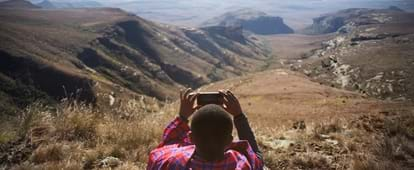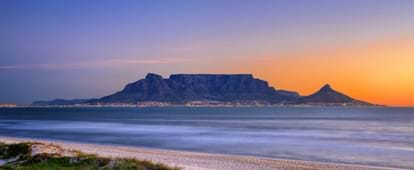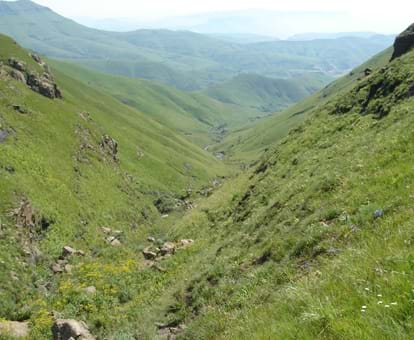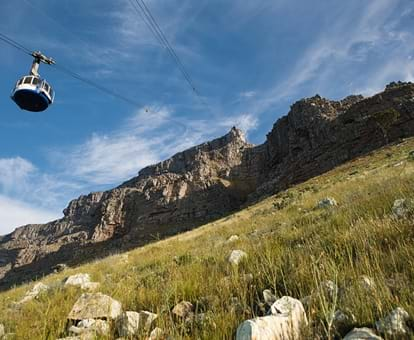By creating an account, I agree to the
Terms of service and Privacy policy
Choose your country and language:
Africa
Americas
Asia Pacific
Europe
FFrom the flattest to the tallest to the oldest to prettiest to the most dramatic, South African mountain ranges are astounding.
When discussing mountains - arguably the most famous( and obviously the flattest) is Table Mountain. The main feature of Table Mountain is the level plateau approximately 3 kilometres (2 mi) from side to side, edged by impressive cliffs. This plateau is flanked by Devil’s Peak and Lion’s Head, and together with Signal Hill forms a natural amphitheatre that makes up City Bowl and Table Bay Harbour.
There is often a white “table-cloth” of orographic clouds that form on the plateau, which legend attributes to a smoking competition between the devil and a local pirate called Van Hunks. The peaks and valleys nearby make up the Table Mountain National Park. When visiting you can hike, abseil, paraglide, walk, run, bike or take the cable car. No matter how you get to the top, the reward is the same – a spectacular view over the Indian and Atlantic oceans.

TThe north of the Western Cape is home to the beautiful Cederberg Range, a very popular area for mountain bikers and hikers.
Along the N2, on the Garden Route you will see the Helderberg and Hottentots Holland mountains. In the Eastern Cape, at the end of the Garden Route, why not visit the Baviaanskloof Wilderness, 270 000 hectares of rugged mountain beauty. At any of these ranges, you can hike, bike, fish, bird, climb and abseil.
FFor serious hikers and nature lovers, KwaZulu-Natal's uKhahlamba-Drakensberg Park Mountain Range is a destination in itself. The area is a World Heritage Site and is the highest mountain range in SA at around 3000m. The range runs for 150km and is therefore diverse, with steep river valleys, sandstone cliffs, and flora and fauna you won’t find anywhere else. The range also has the largest collection of San rock paintings in southern Africa. Enjoy all the mountain activities, and when you’re done head to the rivers in the valleys for trout fishing, tubing and swimming.
If you’re up north, the Magaliesberg Mountain Range is 120km from Joburg and forms the ridge between the grasslands of the Highveld and the game lands of the bushveld. Here, quartzite cliffs tower above with deep gullies, plunging pools and waterfalls interspersed down the mountainsides. The area is great for day, weekend or week-long outings for people of all ages. The oldest range in the country (and one of the best examples of Archean Earth) is the Barberton Greenstone Belt, dating back 3600 million years.

IIn the middle of the country, the incredible Maluti Mountain Range is world-famous for its golden sandstone cliffs. In Clarens in the Free State, there are dinosaur sites and San caves.
The Roggeveld Mountains is a mountain range situated mainly in the Northern Cape, forming the western escarpment of the eponymous Roggeveld plateau, and separates it from the lower lying Tankwa Karoo to the west. Its highest peak is Sneeukrans (1,739 m), situated northwest of Sutherland. It occupies an extensive but remote part of the Northern Cape and is seldom visited by tourists.
The Blouberg (formerly "Blauwberg"), meaning "Blue Mountain" in Afrikaans, is a range of mountains in Limpopo Province, at the far north of South Africa. The mountain is entrenched in the history of the local Tswana people, and they have different names for its various parts. The Blouberg forms part of the 'Vhembe Biosphere Reserve', named a biosphere reserve by UNESCO since 2009.
Related articles




